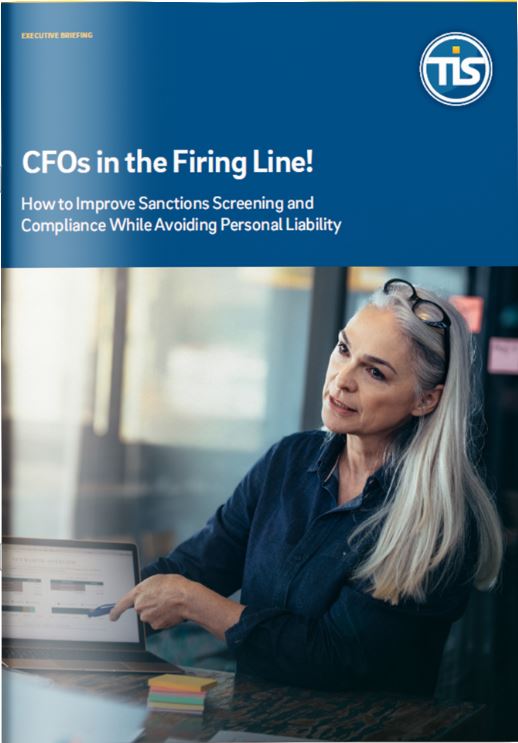| 30-06-2020 | Mark Roelands | treasuryXL
Insurance premium rates are reported to increase on average with about 2% in Europe, confirming the overall market trend of a hardening insurance market. Some markets have, however, seen double-digit growth in premiums, like D&O and Motor Third Party Liability. Other markets witnessed important coverage elements actually being excluded from cover, making the premium comparison apples and pears. As Covid-19 is impacting claims experience across all lines as well as causing negative investment returns, the hardening insurance market trend is expected to continue and get worse in 2020. Premium increases are to be expected and retention levels are expected to be increased.

It is therefore critical to work with your insurance broker in time to understand and mitigate effects for the treasury and insurance function. What is the action plan when retentions are being driven upwards or when cover is disappearing? What alternatives are available next to traditional insurance? Will your organisation be forced to retain risk above the risk appetite or accept double digit premium increases?
Although retaining additional risk may not be the worst solution, as premium increases may not reflect the actual risk that is being transferred and there are awareness benefits to being exposed to risks, the possibility to transfer alternatively is very valuable in the current hardening market.
Captive insurance
A captive is an in-house insurer, enabling efficient and centralized risk pooling while providing cover to operating companies and thereby bridging the gap between corporate and local risk appetite. Key arguments for establishing a captive are to smooth the impact of hardening insurance markets as well as provide additional flexibility in cover. The current market environment is therefore a textbook example for establishing an insurance entity. However, a captive is a licensed insurance company that comes with added costs and a compliance burden. This is especially true since Solvency II became active in 2016. As a general rule of thumb a minimum threshold of captive premium of EUR 2Mio would be required for a Dutch based captive, allowing for claims expenses (70-80% claims ratio), operating costs as well as building some reserves. Establishing a captive in other jurisdictions can make sense, as the route to licensing might still be feasible in 2020 (for the Netherlands at least 6 months are to be expected) as well as the opportunity of some more light-weight operational structures.
An interesting alternative to the fully owned, traditional captive is a Cell Company; either an Incorporated Cell Company (ICC) or Protected Cell Company (PCC). These alternatives provide the benefit of a shared structure (including initial capitalisation) and enable a ring-fenced environment for your organisation. In order to arrange that ring-fencing, specific legislation is required, which is found in Malta in the EU. Guernsey (leaving tax considerations aside) might be very interesting as well. Ireland and Luxemburg did give some hints for establishing cell company legislation but after Brexit this was delayed indefinitely. A Cell Company can provide the same functionality as a fully owned captive, but treasury and insurance will have to work with legal and tax to get a solid business case in place in order to address questions proactively.
Both Aon-Willis and Marsh have Cell Companies and would be able to assist, but insurers can also facilitate this (which has a lock-in effect) while there are also more independent providers like Artex, SRS (completing the top 5 of largest captive managers 2020) and firms like Atlas or Robus which can potentially be of added value as well.
Parametric Insurance
Next to captive insurance, parametric insurance is a promising route to follow.
Parametric insurance has historically been connected to weather insurance (e.g. rainfall exceeding a threshold leading to a pay-out) as well as longevity cover for pension funds (in the form of Insurance Linked Securities, Longevity Swaps). Parametric products enable a highly transparent and quick risk transfer and enable the route to other markets than the insurance market. A parametric product can be structured in an insurance structure but in a derivative structure as well. Conceptually an insurance-linked derivative will not be different than the plain vanilla currency instruments that are traded.
Covid is also attracting significant attention for parametric cover, as lockdown measures can be clear-cut triggers for parametric cover. Most importantly, for parametric cover clear risk information and data analysis is required and both are increasingly available. Increasingly better data and analysis techniques enable to minimise basis risk i.e. the risk in which an incident occurs but the derivative trigger is not being met. For instance site-specific weather stations are set up to ensure rainfall or water level at your organisations’ sites are being monitored. Increasingly, non-weather risks are being covered, for instance Ryskex GmbH and Axis Capital have worked together to develop parametric cyber-insurance cover.
Where traditional insurance has deductibles and exclusions, parametric risk transfer has basis risk which needs to be managed. Next to that other operational processes may be impacted, claims management for instance and therefore it is recommended to make a well founded and analysed decision.
Roadmap
Starting financing risks in a different manner is not a decision to be made in isolation and to be done quickly. It is a structural decision requiring a structured approach. In our practice, we use our Risk Finance Framework which is composed of (1) Foundation, the objectives to be met (2) People & Organisation, matching the organisation, policies and people involved (3) Processes, adaptive, effective and efficient (4) Data and Technology, the business case based on solid risk information.
In our view, this provides a very practical and structured approach allowing stakeholders like tax and legal to be involved throughout the process. Back planning from a January renewal date, it is critical that conversations with your broker and insurers are taking place in order to ensure no last-minute surprises are presented as a treasury or Insurance professional. In parallel, the (internal) business case can be analysed in order to make a decision.
Therefore, it is recommended to start preparations early, or actually on an asap basis.
Alternative Risk Financing can be highly interesting, but it is not an instant go-to solution and requires some preparations.

Mark Roelands
Risk and Compliance Specialist




















